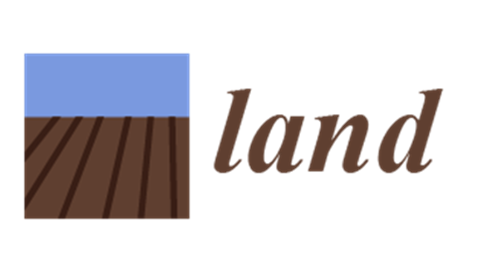沿海旅游区海洋垃圾与直接游客分区密度之间的相互依存关系:城市可持续发展的方法论
IF 3.2
2区 环境科学与生态学
Q2 ENVIRONMENTAL STUDIES
引用次数: 0
摘要
几十年来,以沿海旅游区(CTTs)城市化为特征的海岸带通过土木工程不断扩大,改变了海岸线的动态,形成了对旅游业至关重要的人工海滩。为了研究沿海旅游区(CTTs)中旅游和居住用地的广泛使用与海洋垃圾存在之间的关系,我们在加那利群岛最大的岛屿特内里费岛(Tenerife)沿岸开展了一项具体的参数研究。由于特内里费岛的地理位置和受湾流下降的影响,所选区域的沿岸水域在当地和全球范围内都受到废物的影响。不过,洋流沉积的海洋垃圾属于微观层面,不属于本报告的研究范围。本研究对研究区域的城市现实进行了参数化,并使用标准化计量单位对宏观垃圾的存在进行了参数化。这样就可以确定源头测量值,从而有助于采取预防措施来防止这类沿岸污染。游客分区、海滨土建工程与游客无法进入和可见区域的海洋垃圾之间的相互依存关系,需要一种方法来更好地了解垃圾来源和装载区域。这些知识对于建立有效的本地监测系统至关重要。通过计算城市密度,在城市环境中设计了一种定量叠加阅读方法,同时通过使用可视化水下提取技术,检查这些区域紧邻的近岸底层的垃圾情况。对每个区域的废物类型和数量进行预测,将有助于在城市层面开展有效的宣传,促进采取预防和纠正措施。研究结果表明,城市密度与垃圾的存在之间存在直接的关系,同时也可以根据城市密度及其相关矢量来预测垃圾的数量。它们之间不存在不连续性,因为每个领域都受到其他领域的影响,以至于它们建立了决定每个领域的参数连续性条件。因此,它们之间的关系可以超越一对一的关系。这种方法促进了旅游业的可持续发展,减轻了对海洋的压力,提高了旅游业收入的利用率,以应对与废物有关的挑战,促进欧洲沿海地区旅游业的可持续发展。本文章由计算机程序翻译,如有差异,请以英文原文为准。
Interdependence in Coastal Tourist Territories between Marine Litter and Immediate Tourist Zoning Density: Methodological Approach for Urban Sustainable Development
The coastal strip, characterized by the urbanization of coastal tourist territories (CTTs), has expanded over decades through civil engineering, altering the shoreline dynamics and creating artificial beaches crucial for tourism. To examine the relationship between extensive land use in CTTs for tourism and residences and the presence of marine litter, a specific parametric study was conducted along the coast of Tenerife, the largest island in the Canary Islands. Due to Tenerife’s geographical location and exposure to the descending Gulf Stream flow, the coastal waters in the selected zone experience waste impact at both local and global scales. However, the presence of marine litter deposited by ocean currents is at a micro level and falls outside the scope of this report. This study parameterised urban reality in study areas, and the presence of macro waste has been parameterised using standardised units of measurement. This enables the establishment of source measurements that will contribute to preventative measures against this type of coastal pollution. The interdependence between tourist zoning, civil seafront engineering works along the seafront, and marine litter presence in inaccessible and visible areas for tourists requires a methodology to better understand waste origin and loading areas. This knowledge is crucial for an effective local monitoring system. A quantitative overlay reading methodology has been designed in the urban setting through calculations of urban densities, while examining the waste in these areas’ immediate infralittoral flooring through the use of visual underwater extraction. Anticipating the type and quantity of waste in each area will allow for the implementation of effective awareness, promoting action for preventative and corrective measures at the urban level. The results show a direct dependence between urban density and the presence of waste, as well as an equation that makes it possible to anticipate the amount of waste according to urban density and its relational vector. There is no discontinuity between them, as each area is affected by others to the extent that they establish the parametric continuity conditions determining each field. Therefore, it is possible to relate them beyond a one-on-one relationship. This approach fosters sustainable tourism development, reducing pressure on the sea and enhancing the utilisation of tourism revenues in measures to address waste-related challenges and promotes sustainable tourism development in Europe’s coastal regions.
求助全文
通过发布文献求助,成功后即可免费获取论文全文。
去求助
来源期刊

Land
ENVIRONMENTAL STUDIES-Nature and Landscape Conservation
CiteScore
4.90
自引率
23.10%
发文量
1927
期刊介绍:
Land is an international and cross-disciplinary, peer-reviewed, open access journal of land system science, landscape, soil–sediment–water systems, urban study, land–climate interactions, water–energy–land–food (WELF) nexus, biodiversity research and health nexus, land modelling and data processing, ecosystem services, and multifunctionality and sustainability etc., published monthly online by MDPI. The International Association for Landscape Ecology (IALE), European Land-use Institute (ELI), and Landscape Institute (LI) are affiliated with Land, and their members receive a discount on the article processing charge.
 求助内容:
求助内容: 应助结果提醒方式:
应助结果提醒方式:


